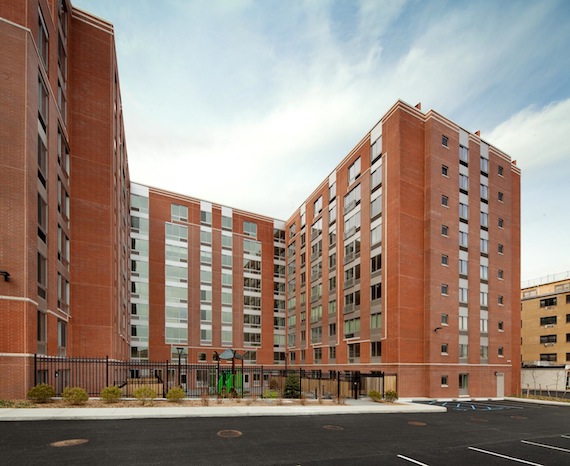
Housing is harder to build, more expensive, and often lower-quality as a result of the city's parking regulations, according to one New York City developer.
Alan Bell was a high-ranking housing official in the Koch administration before co-founding the Hudson Companies in 1986. Since then, Hudson has built 4,250 affordable and market-rate housing units in the New York metro area, along with another 2,000 units under development.
Hudson might have built more housing were it not for parking minimums, however. Bell said in an interview that he's walked away from a number of projects because he couldn't make the required parking fit or evade the parking minimums by subdividing the development into small pieces. "One comes to mind on Grand Street in East Williamsburg. You couldn't get out with the waiver because you're building too many units."
Without the ability to claim an exemption from parking minimums, the economics of the development didn't add up. "If you have a modest size building, it's really prohibitive," said Bell. In addition to the direct costs of building structured parking, which Bell said can range from $25,000 to $50,000 per space, making room for the parking can also reduce revenues. "If you're up against other buildings on both sides, you're going to have to reduce your perimeter retail frontage because you need an entrance for a garage."
Other times, said Bell, he's able to manipulate the structure of the development to ensure that he can avoid parking minimums. In East New York, he divided one project into four different five to six story buildings. "We just played around with the unit mixes so that we could get each of them under the waiver." Had he not been trying to avoid the parking regulations, said Bell, "theoretically, we could have built more units." (In practice, a different set of city regulations would have prevented that at this particular site, even without the parking requirements.)
Sometimes there's no way to avoid the parking minimums. Another East New York project of Bell's has 179 units, enough that parking would be required even if the building were subdivided into pieces. To comply with the law, Bell built 62 surface parking spaces. "I have five takers," he said. The rest sit empty. "Now instead of a big green backyard around the play area, I have this macadam. You just say why?"

Bell identified Brooklyn's Fourth Avenue as another design casualty of parking minimums, pointing to buildings like Boymelgreen Developers' much-maligned Crest and Novo apartment buildings. The large buildings there were required to include parking, but subway lines under the street made putting it underground cost prohibitive. "[Boymelgreen] made the calculation that he'd rather sacrifice having retail on the ground floor in exchange for not putting the parking below ground, it was so expensive," said Bell. The result is a series of buildings that are utterly indifferent to pedestrian life, presenting blank walls and parking to the sidewalk.
One solution Bell proposed is revising the zoning code so that parking minimums are eliminated in medium- or high-density districts near transit. Said Bell, "Historically, there's no question, if I'm building near a subway stop, I'm going to attract a lot of people who don't want a car or need a car. That's proven in the marketplace."
Although Hudson is a residential developer, Bell also urged the city to stop forcing so much parking into new retail centers like the East River Plaza, where 1,428 spaces sit empty. "It drives up the costs of the projects," said Bell. "That comes out somewhere." He placed the blame for these enormous parking lots directly at the feet of the public sector. "In the early days, it was the retailers asking for it. Now it's the government."





